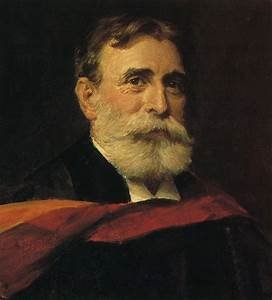Warfield’s sermon on Acts 17:23 was first published in The Power of God Unto Salvation (218-254) and reprinted in Biblical and Theological Studies, 560-580. You can also find it online here. It is well worth a read, since much of what Warfield finds in Paul’s challenge to the Greco-Roman pagans in Athens applies today.
Warfield’s text, “what therefore you worship as unknown, this I proclaim to you,” leads him to discuss Paul’s approach to pagan Gentiles during his Gentile mission. Below are a few excerpts.
Warfield distinguished between Paul’s approach to pagan Gentiles (as he does here) and those Jews familiar with the Old Testament.
These words give the gist of Paul's justly famous address at Athens before the court of the Areopagus. The substance of that address was, to be sure, just what the substance of all his primary proclamations to Gentile hearers was, namely, God and the judgment. The necessities of the case compelled him to approach the heathen along the avenue of an awakened conscience. . . . The peculiar circumstances in which (this sermon) was delivered have imprinted on this address also a particular character of its own. Paul spoke it under a specially poignant sense of the depths of heathen ignorance and of the greatness of heathen need. The whole address palpitates with his profound feeling of the darkness in which the heathen world is immersed, and his eager longing to communicate to it the light intrusted to his care.
Given the similarities between the Greco-Roman audience gathered on the Areopagus and our own age (ignorance of the things of God, the angst of our age, the triumph of the subjective over the possibility of finding objective truth), Warfield describes Paul’s preaching as bringing light into darkness. “Heathen” is a great term to describe many of the unbelievers of our age, and I wouldn’t mind seeing it come back to common usage.
Warfield describes Paul’s passion to approach the pagan intellectuals of his day (who were much like the podcasters and influencers of our own) by challenging them at the very point where their self-perceived “wisdom,” is merely a cover for their ignorance of the things of God.
[Paul] was in Athens, as it were, in hiding. But he could not keep silence. He went to the synagogue on the Sabbath and there preached to the Jews and those devout inquirers who were accustomed to visit the synagogues of the Jews in every city. But this did not satisfy his aroused zeal. He went also to the market place—that agora which the public teachers of the city had been wont to frequent for the propagation of their views—and there, like them, every day, he argued with all whom he chanced to meet. Among these he very naturally encountered certain adherents of the types of philosophy then dominant—the Epicurean and Stoic—and in conflict with them he began to attract attention.
To read the rest, follow the link below
Read More
